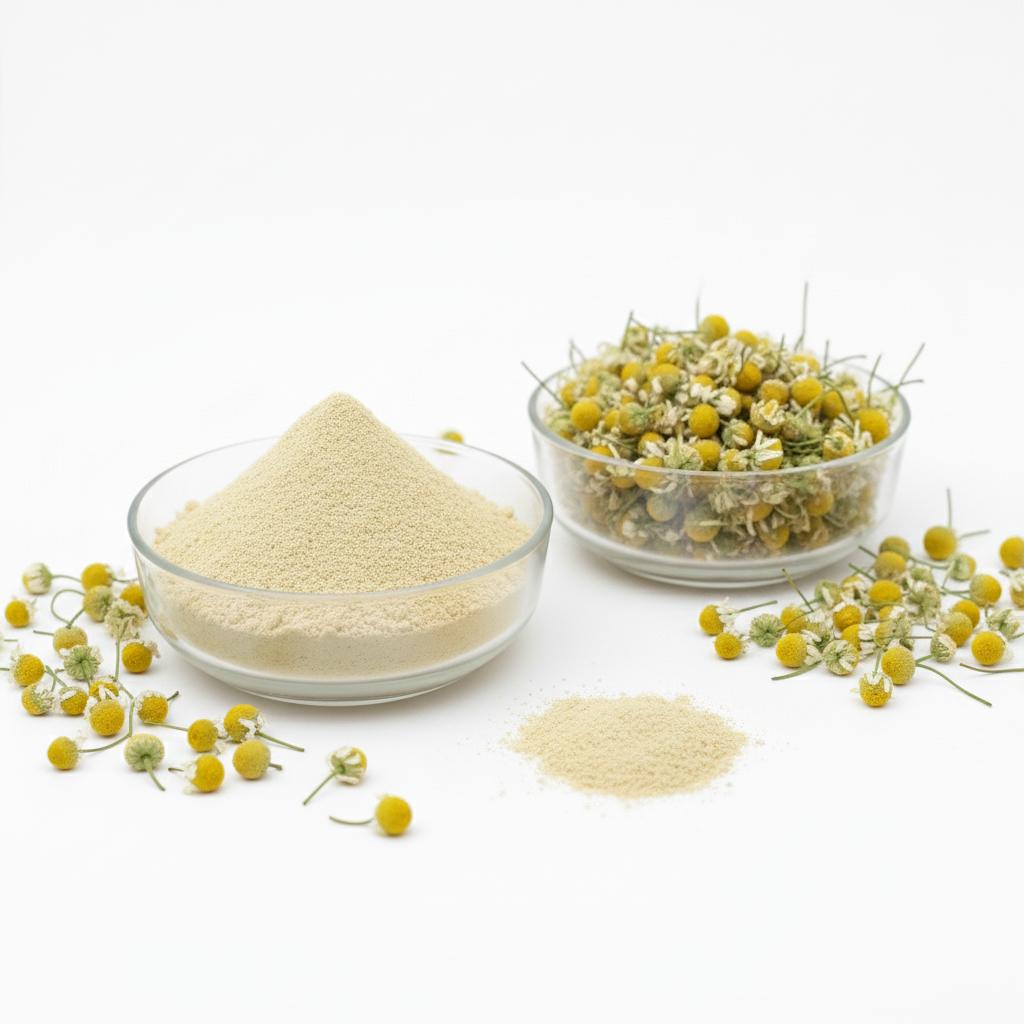
Introduction
In the era of “clean beauty” and plant-derived actives, apigenin powder is gaining recognition as a natural antioxidant and anti-inflammatory ingredient in cosmetic formulations. Extracted from chamomile, parsley, and celery, apigenin (≥98% HPLC-pure) offers skin benefits that are backed not just by tradition but also by scientific research.
This article explores how apigenin powder contributes to skin health, UV protection, and anti-aging. We’ll also review case studies of cosmetic brands using apigenin, practical formulation challenges, and sourcing considerations for cosmetic R&D.
Complete 2025 Buyer’s Guide to Pure Apigenin Powder (Bulk, Price, Suppliers)
1. Antioxidant Properties: Protecting Against UV Damage
Scientific Evidence
According to a 2021 study in the International Journal of Cosmetic Science, topical formulations with apigenin reduced UV-induced erythema by 22% compared to placebo. This confirms apigenin’s ability to neutralize reactive oxygen species (ROS) and protect against photoaging.
Implications for Cosmetics
- Reduces oxidative stress in skin cells.
- Slows the formation of fine lines and wrinkles.
- Enhances sunscreen efficacy when combined with UV filters.
👉 Buyers interested in sourcing for skincare should review Top Apigenin Powder Manufacturers & Suppliers 2025.
2. Anti-Inflammatory & Soothing Effects
Scientific Evidence
A Frontiers in Pharmacology review (2019) highlighted apigenin’s ability to inhibit inflammatory mediators such as IL-6 and TNF-α.
Applications
- Formulated in creams and serums for sensitive skin.
- Used in eczema and rosacea-targeted skincare lines.
- Often marketed as a natural alternative to synthetic corticosteroids in mild formulations.
📌 Pro Tip: Cosmetic formulators often blend apigenin with aloe vera or niacinamide to enhance soothing effects.
3. Skin Brightening & Anti-Aging
Evidence
Apigenin inhibits tyrosinase activity, an enzyme linked to melanin production. This makes it a potential skin brightening and pigmentation control agent.
Applications
- Brightening serums marketed in Asia-Pacific markets.
- Anti-aging creams promoting “plant-derived antioxidant protection.”
4. Cosmetic Case Studies
Case 1: Japanese UV Protection Serum
A Tokyo-based brand introduced a serum with apigenin and green tea catechins. Dermatological testing showed reduced redness (17%) and improved hydration (22%) after 8 weeks.
Case 2: European Sensitive Skin Line
A French clean beauty startup used chamomile-derived apigenin extract in their sensitive skin range. Positioned as “nature’s calming molecule,” it became their top-selling SKU in 2024.
Case 3: Korean K-Beauty Market
Apigenin-enriched sheet masks were marketed as stress relief + skin repair masks, tapping into the wellness-driven skincare trend.
5. Formulation Challenges
- Solubility – Apigenin is poorly water-soluble, often requiring liposomal delivery or solubilizers.
- Stability – Sensitive to light and oxygen; suppliers must provide airtight packaging.
- Regulatory Considerations – In the EU, apigenin is regulated under cosmetic ingredient safety assessments (CIR/EFSA).
6. Market Outlook
The global cosmetic antioxidants market is projected to reach USD 1870 million by 2030 (Allied Market Research, 2023). Apigenin, as a plant-derived flavonoid, fits perfectly into this growth trend. With increasing consumer demand for “natural, safe, and effective” ingredients, apigenin is expected to play a bigger role in clean beauty and premium skincare formulations.
Conclusion
Apigenin powder offers antioxidant, anti-inflammatory, and brightening effects that are highly relevant to the cosmetic and skincare industries. Backed by growing research and consumer demand, apigenin provides formulators with a versatile, plant-based ingredient to strengthen product portfolios.
For cosmetic brands and R&D labs, the key is to source ≥98% pure apigenin powder from GMP-certified suppliers, ensuring both efficacy and compliance.